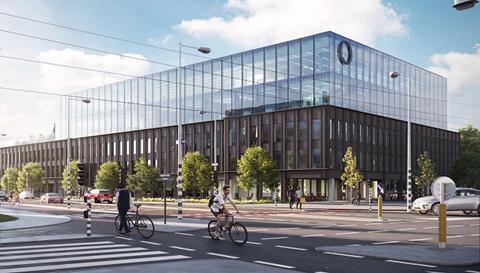The new year brought fires and flooding and the realisation that the climate crisis was something the real estate sector had to shoulder some responsibility for.

With the built environment responsible for 40% or more of carbon emissions, swift action is needed or this information will only add to the already negative image of our sector, as highlighted in the BPF’s perception survey.
At a recent dinner hosted by Central’s Patricia Brown, John McRae of architects firm Orms suggested that the climate crisis could provide a common purpose that the property industry currently lacked. So The Climate Crisis Challenge – which Property Week recently launched in collaboration with UKGBC – and the Property Industry Alliance’s new framework to guide and galvanise UK real estate are to be welcomed.
Tellingly, JLL’s Guy Grainger said in our recent podcast interview: “I think the UK in real estate terms is way behind a lot of northern Europe. When I travel to Germany, the Netherlands and the Nordics, they are probably 15 years ahead of us and I think there is an element of arrogance in the UK real estate industry that we are doing the right things, but mostly it is for accreditation. It is not actually to drive a net zero environment and this is going to become much more of a priority.” Hopefully, this will now change.
My first ULI European Tech Council meeting last month hosted at the impressive EDGE Olympic building in Amsterdam illustrates this. Incorporating the latest tech innovations in health and wellbeing, and designed to minimise environmental impact, the redevelopment reused materials so the original stone facade now serves as floor tiling. The building has numerous certificates and accolades including BREEAM ‘Excellent’ and a world-first Platinum WELL Certification.
The climate crisis will allow the proptech sector to demonstrate how it can help us build and operate our buildings more sustainably. As we invent low-carbon concrete substitutes and find ways to remove carbon emissions from the atmosphere, we need to shout these successes from the rooftops. But we need more investment in tech and R&D if we are going to radically change our ways.

The Fifth Wall VC fund, which invests in tech in the built environment, is leading the way with its new $200m Carbon Impact Fund to invest in tech that reduces real estate’s carbon footprint. As co-founder Brendan Wallace says: “Fighting the climate crisis requires collective, not individual, solutions. And the same is true of the real estate industry in reducing its carbon footprint. Individual real estate owners investing on their own into decarbonisation technologies will be a suboptimal solution for that owner, for the industry and for the world. Instead, the whole industry should convene and form a consortium, pool their capital, expertise and distribution and invest to fight the climate crisis together.”
The need to instil a sense of urgency was reinforced by Wellcome Trust’s Peter Pereira Gray speaking on a recent movers and shakers panel. Brandishing a copy of Greta Thunberg’s book, No One Is Too Small to Make a Difference, he called for a holistic approach in which society comes together globally to effect change. Importantly, he queried whether funds would continue to invest in real estate that didn’t do good for society.
We may not be able to match Amazon chief executive Jeff Bezos’s $10bn pledge to fight the climate crisis but we can all be aware of the issues and treat them as a business priority.
Susan Freeman is a partner at Mishcon de Reya
































No comments yet